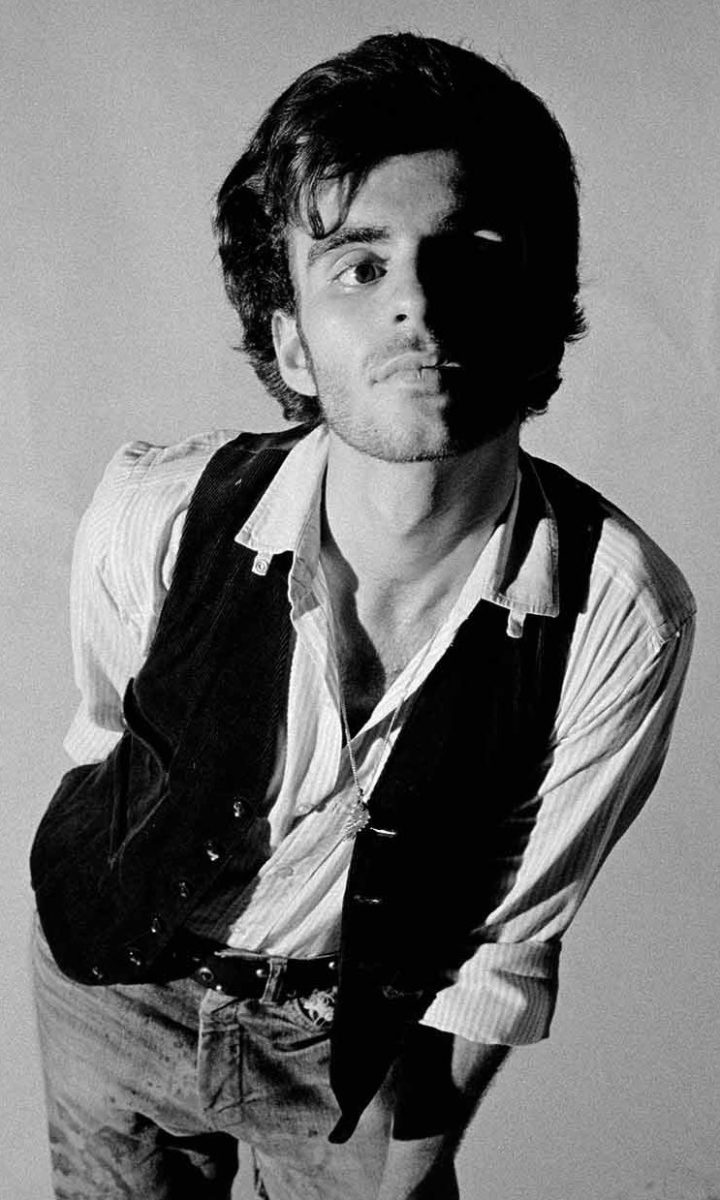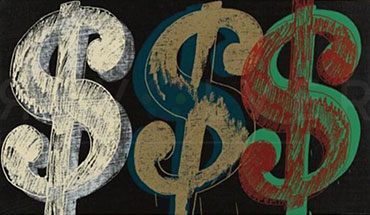Ronnie Cutrone (born 1948, died 2013) was one of Andy Warhol‘s more notable assistants, partially because of the length of his tenure (10 years from 1972-1982), the sheer number of works in which he was involved, and his use of Warhol’s work as a jumping-off point to contribute to the post-Pop art movement of the 1980s. Though he only started working with Warhol in the early 1970s, Cutrone was a regular amongst the Factory superstars since at least 1965, dancing alongside the Velvet Underground in Warhol’s performance art “happening” the Exploding Plastic Inevitable.
Ronnie Cutrone was born in New York City and was already partying in the local art scene by the time he reached high school. He also studied art at the School of Visual Arts NYC. He became more directly involved with Warhol while working on his own photography during the production of Warhol’s 1964 film Soap Opera (burgeoning producer Vincent Fremont was assisting as well), eventually being invited to work at Interview magazine as a contributor of “goings-on” in music and art. The end of Cutrone’s work for Interview coincided with the start of his assistant work. An exhaustive account of which Warhol pieces bear Ronnie Cutrone’s mark would take up much space, but even a brief selection shows how different the Warhol’s work would be without him. Cutrone is attributed with suggesting the concept, the photography, and the color mixing of the Shadow paintings; physically buying and photographing the hammer and sickle that would become part of the eponymous series; participating in some of the Oxidation or “piss paintings”; and providing the photographic basis of the Skull series.
Ronnie Cutrone would leave Warhol’s Factory to become a major contemporary artist, with showings at the Whitney, MoMA, and Brooklyn museums. His works depicts certain characters of older popular culture, including Donald Duck, Woody Woodpecker, and Felix the Cat, in lavishly colorful settings, often superimposed on versions of the American flag. He also helped design and run the iconic Mudd Club, a venue crucial to the late 70s NYC music scene frequented by the likes of Jean-Michel Basquiat, Debbie Harry, and David Byrne.
Ronnie Cutrone died in July of 2013 at the age of 65 from natural causes.


